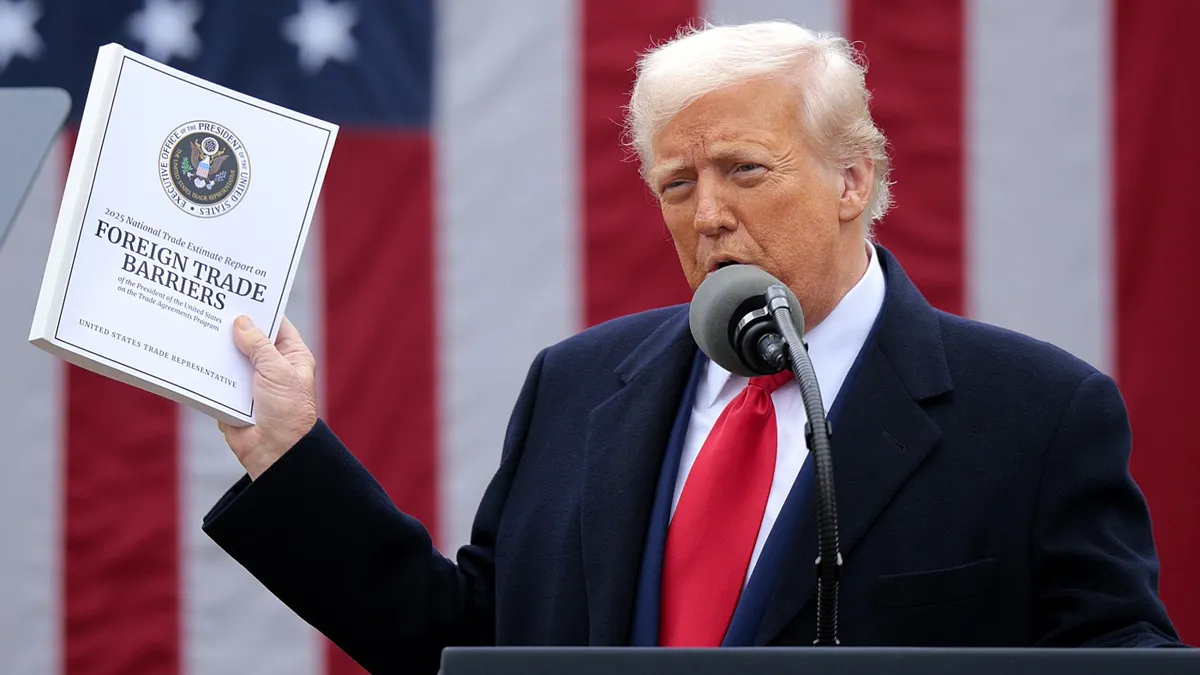
The International Monetary Fund (IMF) issued a stark warning on Tuesday about the potential repercussions of President Trump's extensive tariff strategies, suggesting that the global economy could face significant challenges as these measures threaten to ignite a full-scale trade war. The IMF now forecasts that the global economy will grow by only 2.8% this year, a decline from its previous estimate of 3.3% for 2024. This revision marks a notable shift from earlier predictions made in January, when the organization anticipated growth would mirror the previous year's performance.
In conjunction with the global outlook, the IMF has also revised its expectations for U.S. economic growth, projecting it to be only 1.8% this year, a significant drop from the earlier forecast of 2.8%. This adjustment emphasizes the growing unpredictability that has enveloped the global economy since President Trump announced various tariffs, including those on steel and aluminum imports. Although many tariffs have been placed on hold, the U.S. has still implemented a 10% tariff on all imports, while an additional 145% tariff has been levied on Chinese goods during the current presidential term.
According to Pierre-Olivier Gourinchas, the IMF's chief economist, we are entering a transformative period as the global economic framework that has been in place for the last 80 years undergoes a significant reset. In a recent news conference, Gourinchas highlighted that the abrupt rise in tariffs and the accompanying surge in policy uncertainty are critical factors influencing the current economic landscape. He emphasized that if these trade tensions and uncertainties persist, they could substantially impede global economic growth.
The announcement of new tariffs earlier this month has led to a downturn in global markets, igniting fears among investors that foreign capital may begin to withdraw from the U.S. economy. There is a growing sentiment that the U.S. economy, long regarded as a safe haven for investments, may no longer hold that status. One of the primary concerns among investors is the potential for retaliatory measures from countries affected by Trump's tariffs, which could exacerbate global economic tensions.
In a strategic move, Trump has temporarily suspended most reciprocal tariffs he had previously imposed on various countries, with the exception of China, as his administration seeks to negotiate new trade agreements. So far, both China and Canada have responded with their own tariffs, and the European Union has expressed its readiness to retaliate while also indicating a willingness to engage in negotiations.
With the global economic landscape shifting rapidly due to these trade policies, the implications for future growth and stability remain uncertain. The IMF's warnings serve as a crucial reminder of the interconnectedness of global economies and the potential risks that arise from escalating trade tensions. Scott Horsley contributed to this report.